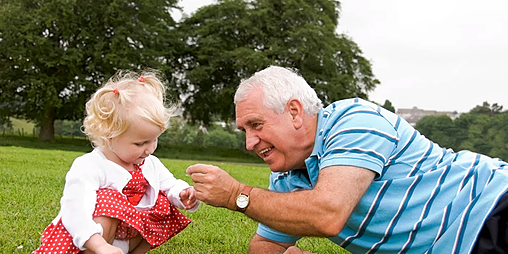Making The Most Of Your “Golden Years”
With people now living longer and retiring earlier, the retirement years can represent a substantial portion of our life – perhaps as much as one-third of our life span! By refusing to fade away, the retirement years can be some of the most rewarding.
Here are some suggestions to help you keep busy and make the most of retirement:
- Make a list of your abilities and volunteer your services. The skills and experience you have gained from a lifetime of work may help you start a small business or do valuable volunteer work for a favorite charity. If you do not know where to begin, check out Canada’s “national voice for volunteerism” at www.volunteer.ca. This website provides a questionnaire to help you decide what volunteer activities best suit you. By clicking on a map of Canada, you can find contact information for volunteer opportunities in your area.
- Renew your interests in hobbies and activities you enjoy or learn some new skills so you remain productive. Quite often hobbies can turn into a vocation that may even provide a source of income.
- Go travelling if you can afford it. The early years of your retirement are the ideal time to visit those faraway places you’ve always wanted to see, or become an expert on places of interest that are located closer to home.
- Reconnect with others. With more time on your hands, you can track down old friends and build or rebuild a social network. The internet is a great tool to use to find old friends and make new ones. There are numerous online discussion forums, e-mail lists, and e-mail pen pal groups that give you a way to meet people around the world.
- Set new fitness goals. A healthy body facilitates a healthy mind. Try some new physical activities such as yoga, jazzercise, or karate. Alternatively, maybe now is the time to train to run in a marathon.
- Work part-time. As discussed, many seniors are finding that their skills are very much in demand and that working on a part-time or seasonal basis still allows them flexibility to do other things, and it enhances their financial stability.
References:
- Jamila Bookwala (Ed.). (2016). Couple Relationships in the Middle and Later Years: Their Nature, Complexity and Role in Health and Illness. American Psychological Association, Washington, DC.
- Qualls, S. & Abeles, N. (Eds.). (2002). Psychology and the aging revolution: How we adapt to longer life. Washington, D.C.: American Psychological Association.
- Vaillant, G. (2002). Aging Well: Surprising Guideposts to a Happier Life. New York: Little, Brown and Company.
- Yogev, S. (2012). A Couple’s Guide To Happy Retirement: For Better or Worse (2nd ed). McGraw-Hill, NY.













